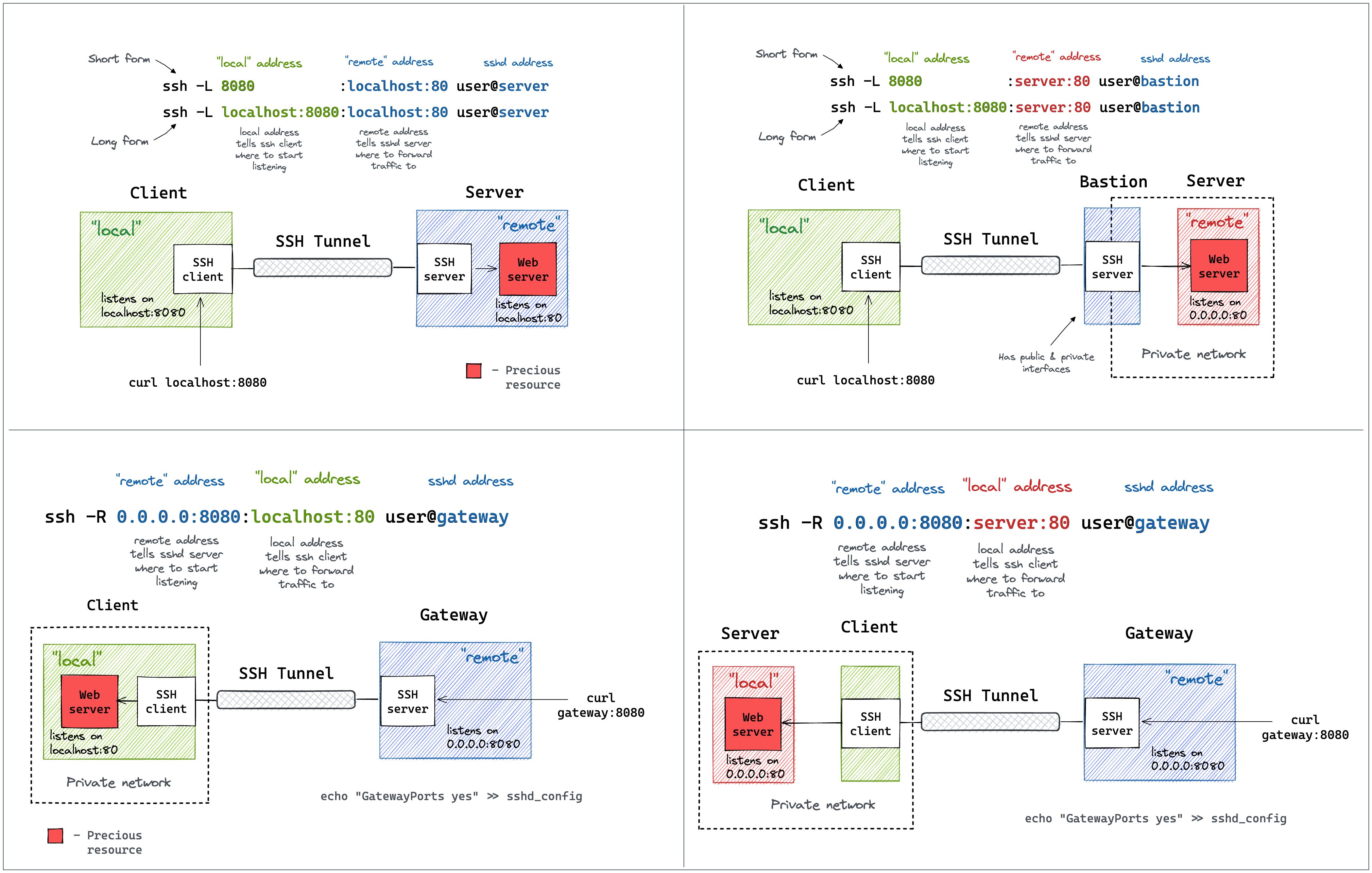SSH
ssh is a program for logging into a remote machine and for executing commands on a remote machine. It is intended to provide secure encrypted communications between two untrusted hosts over an insecure network.
Basics
| Bash |
|---|
| ssh user@destination <command> # exec <command> in remote machine ($SHELL if omitted)
ssh user@destination -i <path/to/private-key> # use key for auth
ssh user@destination -f # exec ssh in the background
ssh user@destination -N # do not send commands to the server (do not start $SHELL)
ssh user@destination -g # allow remote hosts to connect to local forwarded ports
ssh user@destination -t # force pseudo-tty emulation
|
Note: use ~ while connected to use the "ssh console".
Jump-Hosts
Connect to the final destination jumping through the specifies other destinations.
| Bash |
|---|
| ssh -J user_1@destination_1,user_2@destination_2 user@final_destination
|
Port Forwarding

Local Port Forwarding
Start listening on local_address:local_port and forward any traffic to remote_address:remote_port.
| Bash |
|---|
| ssh -N -f -L local_address:local_port:remote_address:remote_port user@destination
ssh -N -f -L local_port:remote_address:remote_port user@destination # local_address defaults to localhost
|
Remote Port Forwarding
Start listening on remote_address:remote_port and forward any traffic to local_address:local_port.
| Bash |
|---|
| ssh -N -f -R remote_address:remote_port:local_address:local_port user@destination
|
